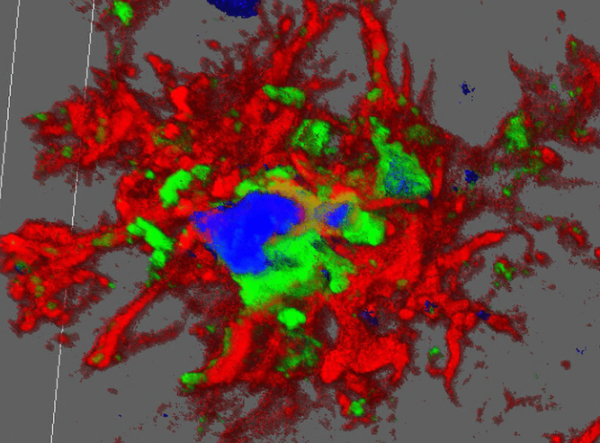This study reveals how sleep deprivation affects microglia, and finds that TREM2 mediates sleep deprivation-induced microglia overactivation, and β-Amyloid protein (Aβ) deposition increases. Long-term chronic sleep deprivation regulates inflammation and the metabolic reaction of microglia and Aβ in the brain. With the accelerating pace of society and increasing work pressure, it is sometimes particularly luxurious for modern people to have a good sleep. However, a large number of studies…
Cancer research
Novel CAR-T Cell Therapy with Potential for Treating Human Solid Tumors
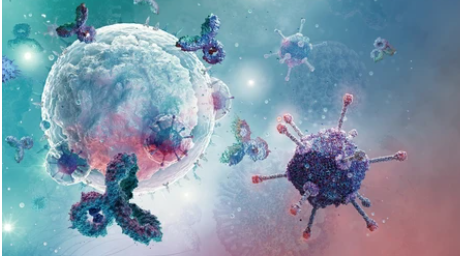
Because of the expansion and persistence of CAR-T cells, patients receiving CAR-T cells rich in memory T cells tend to have better disease control. Human memory T cells, including stem cell-like CD8+memory T cell progenitors, will become functional stem cell-like T cells (TSTEM) or dysfunctional T group cells (TPEX). Recently, a research report entitled “T STEM like CAR-T cells exhibit improved persistence and transformer control compared with conventional CAR-T cells…
Special Protein FAM193A with Novel Anti-Tumor Activity
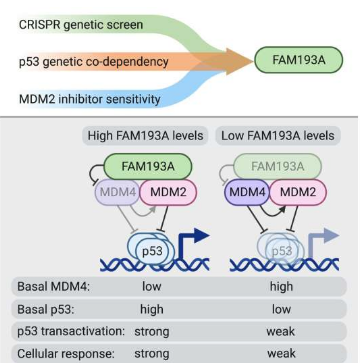
Scientists from institutions such as the Anschutz School of Medicine at the University of Colorado have discovered and characterized a specific protein that is primarily involved in the specific mechanisms that inhibit the progression of different types of tumors. Understanding how cancer occurs is crucial for designing effective personalized cancer therapies. For many years, researchers have known that cancer begins with mutations in certain types of genes, one of…
Interferon-gamma (IFNG) drives regulatory T cells to restrain DC1-mediated priming of cytotoxic T cells against lung cancer
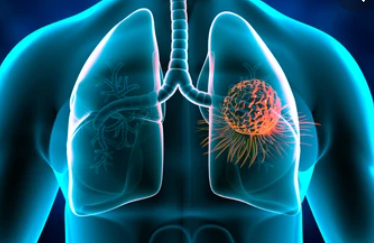
Immunotherapy – drug therapy that stimulates the immune system to attack tumors – has a good effect on some types of cancer, but its effect on lung cancer is mixed. A new study helps to clarify why the immune system responds so weakly to lung cancer, even after treatment with immunotherapy drugs. In this study on mice, researchers from the Massachusetts Institute of Technology found that bacteria found naturally…
ROR2 may be a potential biomarker of prostate cancer
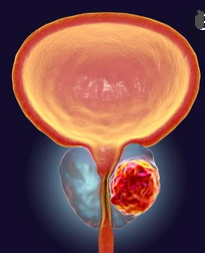
Prostate cancer (PCa) is the main cause of cancer-related deaths in men. Androgen deprivation therapy (ADT) is still the standard systemic treatment, but patients always progress to metastatic castrated tolerant prostate cancer (mCRP C). Most of these tumors will react to the further treatment of androgen signaling inhibitors (ASIs), but inevitably will produce drug resistance. Changes in androgen receptor (AR) and interaction pathway contribute to the sustained activity of…
AMPK activation is a promising strategy to reduce the risk of melanoma
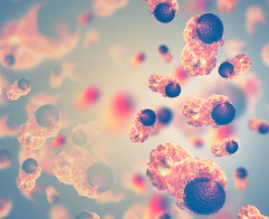
Skin cancer is the most common cancer in the United States, with about 5 million cases every year. Melanoma is less common than other types of skin cancer, including basal cell carcinoma (BCC) and squamous cell carcinoma (SCC), but it causes most of the death of skin cancer. The risk of melanoma is related to environmental factors, such as ultraviolet radiation (UVR) and genetic background. It is noteworthy that…
The combination of PD1-IL2v and anti-PD-L1 can destroy the resistance of cancer to immunotherapy
Immunotherapy is a method of treating cancer by reprogramming the immune system of patients to attack their tumors. This cutting-edge treatment has had a significant impact on the treatment of cancer patients, and there have been cases of long-term remission. However, many patients either do not respond to immunotherapy, or even if they do, the effect is temporary, which highlights how important it is for us to better understand…
CAR-T cell therapy is expected to eliminate residual tumor cells after solid tumor surgery
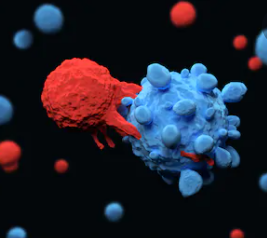
In a new preclinical study, researchers from the Perelman School of Medicine at the University of Pennsylvania found that as a method of reprogramming patients’ autoimmune cells to attack their blood cancer, CAR-T cell therapy may improve the effectiveness of surgical treatment of solid tumors. The relevant research results were published in the journal Science Advances, and the title of the paper was “Chiric antigen receiver T cells as adjuvant-therapy…
New Co-stimulatory Signal Enables CAR-T to Show Its Potential in the Treatment of Solid Tumors

Chimeric antigen receptor (CAR) expressing T cells (CAR-T therapy) is one of the major breakthroughs in the field of cancer treatment in recent years, and has achieved excellent results in the treatment of blood cancer. CAR is like a “GPS navigation system” for T cells, so that T cells can quickly locate tumor cells that are good at camouflage, so as to find and kill them. So far, two CAR-T…
Blocking the Effect of ATM / ATR on Serine tRNA Synthetase can Reduce Tumor Growth
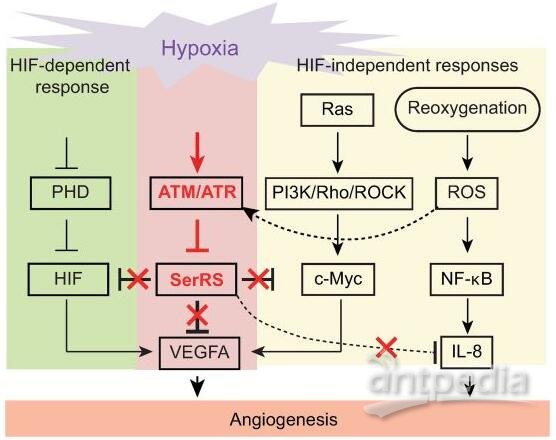
Most organisms need oxygen to grow and develop, even cancerous tumors. That’s why in the absence of oxygen, tumors can easily grow new blood vessels, creating a new lifeline for survival. In a new study, researchers from Scripps Institute and Nankai University in China have pinpointed the molecular mechanisms that make this happen, and provided scientific insights, making it possible to develop drugs that help kill tumors and prevent…
